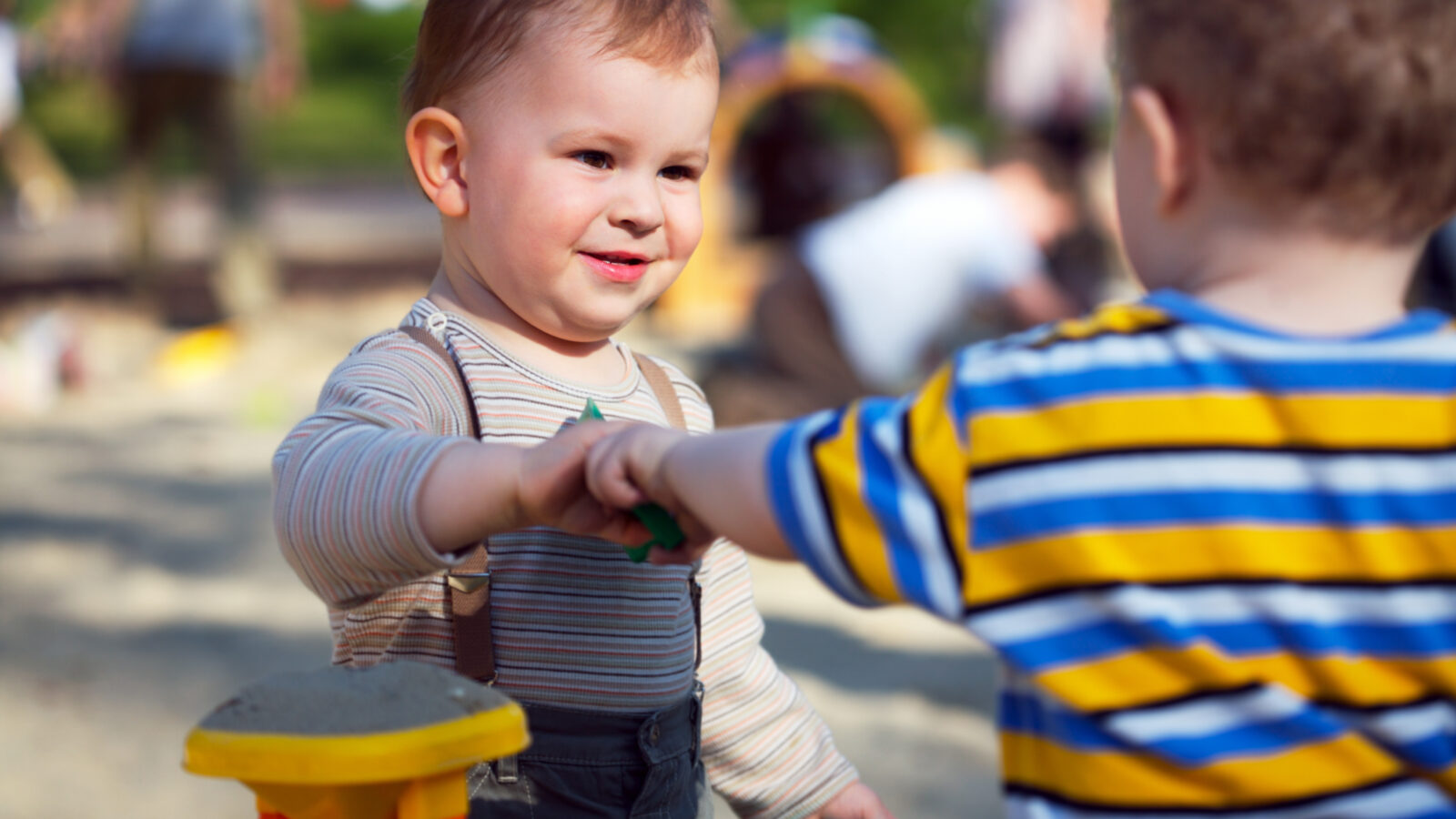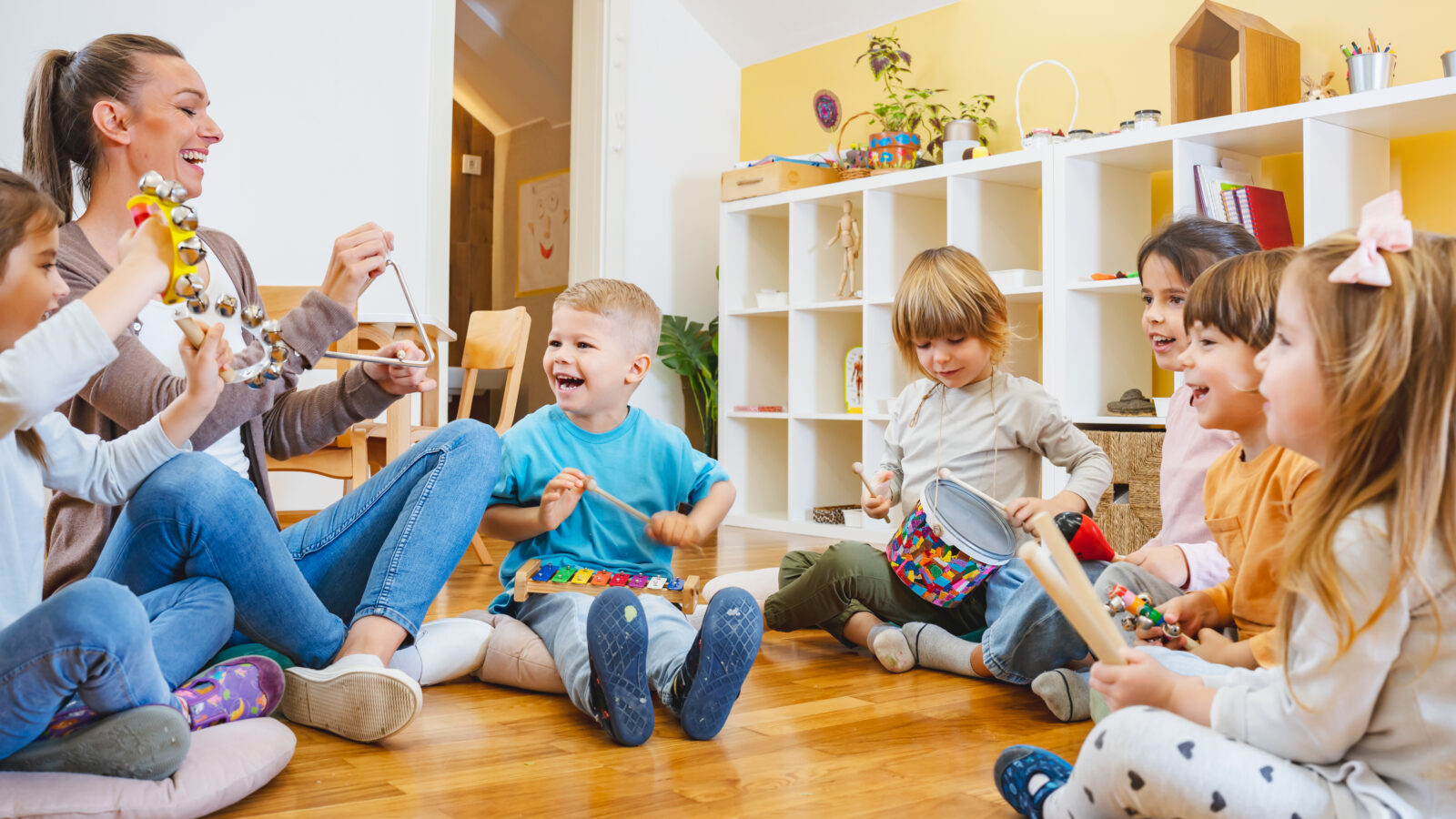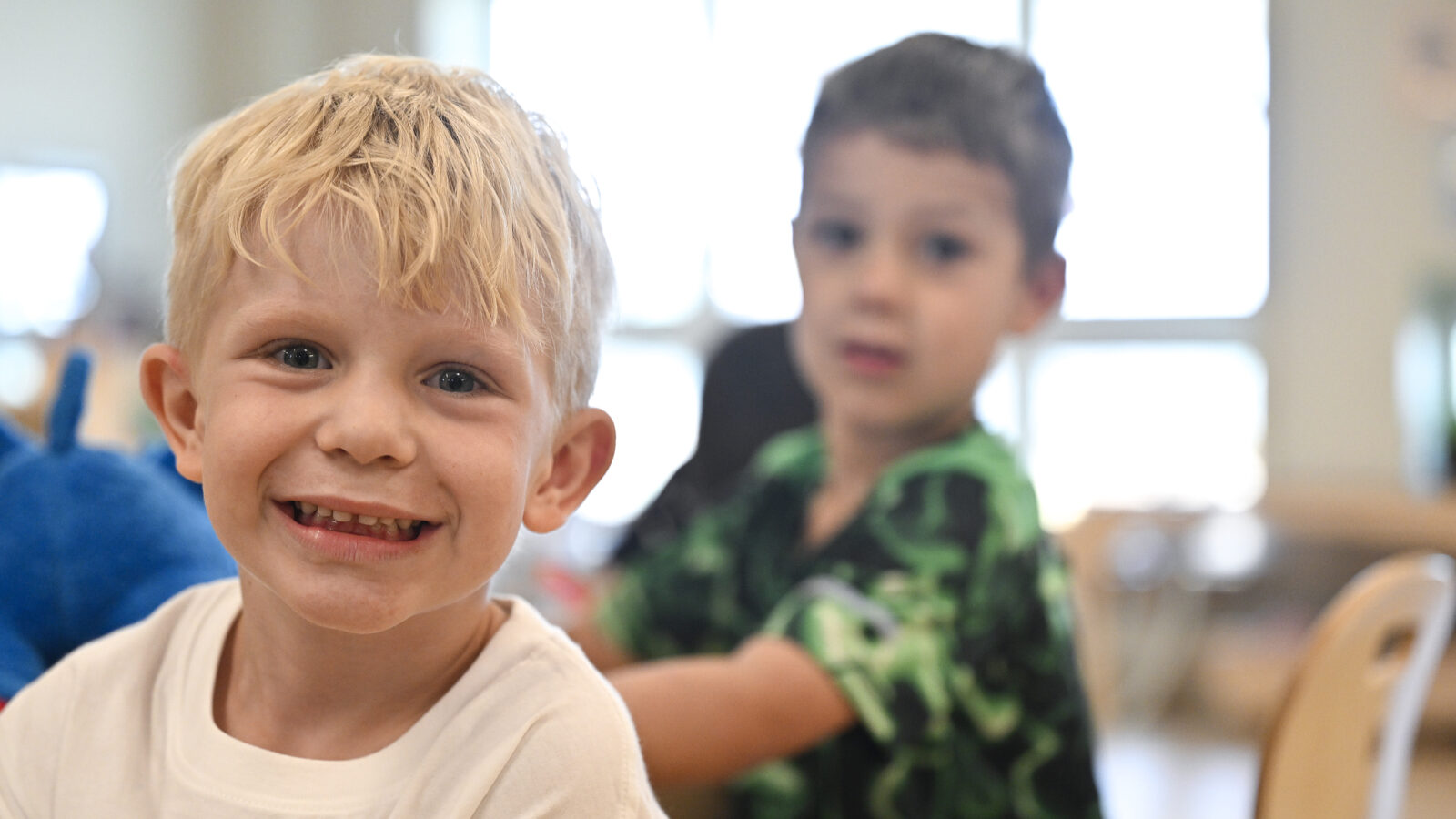The Importance of Social Emotional Learning in ECE

By Jessica Knaub, Center Director at Catherine Hershey School for Early Learning, Middletown
I’ve spent most of my career working in early childhood education, and of course, that means you get to know a lot about kindergarten, too, and what skills children should acquire ahead of the big day when they move to the first year of formal education.
The expression ‘kindergarten readiness’ occupies many news topics and articles, and also keeps many families up at night, worried that their children are not ‘ready.’ Concerns often include potty training or pencil grasp development, but kindergarten teachers tell me that they want children to be prepared to understand their emotions, how to regulate their emotions, how to build relationships, and problem solve. Together, these skills are called Social and Emotional Learning (SEL), and teachers report that these skills are more challenging for children now, than they were five years ago.
What is Social and Emotional Learning?
As ECE professionals, you understand the importance of SEL. But, as a refresher, or for non-ECE professionals who aren’t as familiar, SEL is the process through which children acquire and effectively apply the knowledge, attitudes, and skills necessary to understand and manage emotions, set and achieve positive goals, feel and show empathy for others, establish and maintain positive relationships, and make responsible decisions. These competencies are crucial for a child’s overall development and success in life and can be woven into everyday early learning activities such as storytelling, role-playing, and cooperative games. At CHS, we support SEL in our centers by implementing universal practices to support all children, a pyramid model for tiered interventions and support, and curriculum that supports building resilience for both the adults and children in our classrooms. Supporting children’s SEL includes direct support and instruction in naming emotions, problem solving, conflict resolution, and communication.
The Building Blocks of SEL
- Emotional Regulation: This involves helping children recognize their emotions and thoughts and understand how they influence behavior. It also involves teaching children strategies to manage strong emotions, for example, through calming techniques.
- Impulse Control: This means helping children to regulate their emotions, thoughts, and behaviors in different situations, including practicing patience and waiting their turn. It also includes managing stress and handling frustration in healthy ways.
- Communication: Teaching children how to express their feelings and thoughts clearly is the foundation of social-emotional development and can help children build relationships, understand others, and resolve conflicts.
- Empathy: Encouraging children to recognize and respond to the emotions of others is a vital part of developing emotional intelligence and interpersonal relationships.
- Social Awareness: This competency is about teaching children to appreciate differences in others and understand and empathize with others from diverse backgrounds, cultures, or physical and personality differences. It’s crucial for fostering a sense of community and inclusivity.
- Cooperation and Teamwork: These skills help children establish and maintain healthy and rewarding relationships through clear communication, active listening, sharing, taking turns, and working with peers. They also include conflict resolution, through introducing simple strategies for resolving disagreements with others, such as using words and seeking help when needed.
- Consequences of Actions: Helping children understand the impact of their actions on themselves and others through making constructive choices about personal and social behavior.
Why is SEL Important in Early Childhood?
Early childhood is a critical period for SEL, as children are highly impressionable and capable of learning and adapting to new skills and behaviors quickly—and SEL programs more than pay for themselves. Analysis of six evidence-based programs has shown the benefits strongly outweigh the costs, estimating for every dollar invested in SEL there is an $11 return. Integrating SEL into early childhood education offers numerous benefits, including:
- Improved Academic Performance: Research indicates that children with strong SEL skills tend to perform better academically, through the creation of a positive and conducive learning environment that enhances cognitive skills and academic achievement.
- Better Emotional Regulation: Children who are taught in early childhood settings with SEL programs are better equipped to manage their emotions. This leads to reduced behavioral problems and a more harmonious classroom environment.
- Enhanced Social Skills: SEL fosters empathy, cooperation, and communication skills. These are essential for building strong, positive relationships with peers and adults.
- Long-Term Benefits: The skills learned through SEL are not just beneficial in K-12 classrooms but extend into adulthood. They contribute to better mental health, career success, and overall life satisfaction.
As the Center Director for Catherine Hershey Schools for Early Learning (CHS) in Middletown, the third of six planned CHS locations, I have an opportunity to ensure that SEL takes its rightful place at the heart of the program.
As we continue through our nearly year-long professional development program, Seeds to Lead, we’ve incorporated SEL training into the program to implement once our center opens and we are supporting children and families. A few approaches we’ve discussed:
- Reading and creating social stories with our future children
- Supporting problem solving and conflict resolution when necessary and with role playing activities
- Supporting children’s learning about their emotions and giving words and meaning to the feelings they are having
One of the greatest ways to support children’s Social Emotional Learning is through the respect, communication, and modeling of interactions by the trusted adults in their lives. As the countdown begins to our exciting center opening next year, we are all looking forward to helping the children we serve arrive at kindergarten equipped with the foundations they need for a lifetime as compassionate, resilient, and successful adults.
If you or someone you know is interested in joining our passionate team at CHS, open positions can be found here.




